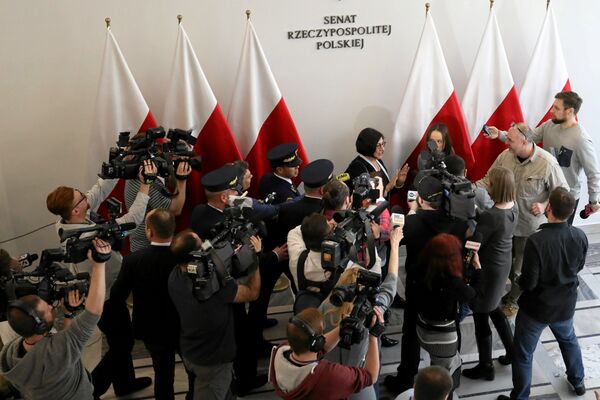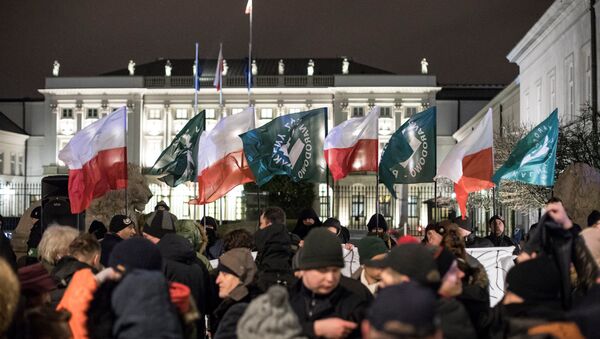Israeli broadcaster ITON.TV commentator Alexander Gur-Arie said that "the wave of negative statements that were raised in Israel in connection with amendments to the Polish legislation related to the Institute of National Remembrance was largely caused by our internal political spats and a slight scent of elections that are already in the air."
Gur-Arie recalled that Tel Aviv especially condemned the second part of the amendments, which warns against blaming the Polish government and the Polish people for the genocide of the Jewish people during the Second World War.
"It's senseless to accuse the Polish government just because it was not in place at the time: Poland was seized Nazis and there was the Polish government in exile based in London. This government had repeatedly appealed to the heads of European countries to pay attention to what Nazi Germany was doing in Poland," he said.

Gur-Arie underscored that although "the law prohibits accusing the Polish people on the whole," no one denies the fact that there were collaborators and accomplices of the Nazis, who then faced trial.
He admitted that it would be foolish to reject facts of anti-Semitism in Poland, which he said has always been there.
According to him, a wave of mass nationalist and anti-Semitic statements in the Polish press and the Internet was a response to Israel's backlash related to the creation of the Institute of National Remembrance in Poland.
READ MORE: Jewish Union Head Warns Poland's Nazi 'Death Camp' Bill Stifles Honest Debate
Citing the cancellation of Israel Education Minister Naftali Bennett's visit to Warsaw due to the scandal, Gur-Arie stressed that joint efforts are needed to review the new law on the Institute of National Remembrance.
"During a phone call, our Prime Minister discussed this problem with the Polish leadership. They agreed to jointly decide on how to compile the document more correctly so as to avoid ambiguities," Gur-Arie said.
When asked whether the scandal will complicate Polish-Israeli relations in light of speculation about the withdrawal of the Israeli ambassador to Poland, he voiced hope that this scenario will never see the light of day.
"I think that all this can be resolved by means of negotiations. Relations between Israel and Poland were quite acceptable and I think that it is misunderstanding that is behind the current scandal. I hope that everything will be restricted to verbal showdown," Gur-Arie concluded.
Earlier, Israel summoned the Polish envoy to express its "opposition to the wording of the law" as Duda stated that he would never allow his country and Polish people in general to be "vilified" through "false accusations" of Poland's alleged involvement in the Holocaust.
Referring to the law, the Israeli Foreign Ministry, for its part, warned against "any attempt to challenge historical truth."
The views and opinions expressed by Alexander Gur-Arie are those of the speaker and do not necessarily reflect those of Sputnik.


